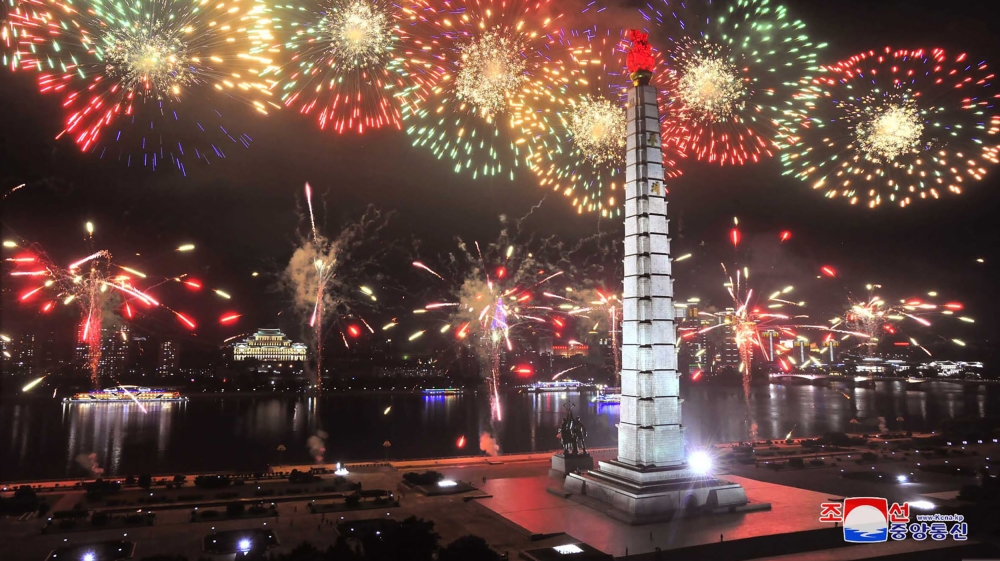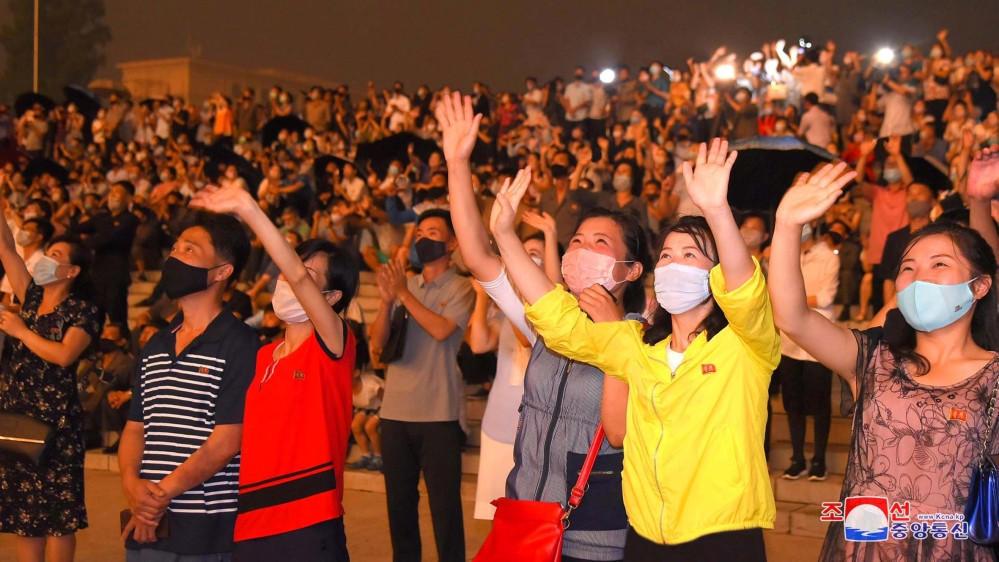Kim says N Korea’s nuclear arms guarantee security, prevent war
North Korea’s leader signals he has no intention of giving up nuclear weapons despite deadlock in talks with US.

North Korean leader Kim Jong Un has called his country’s nuclear weapons a solid security guarantee and a “reliable, effective” deterrent that could prevent a second war on the Korean Peninsula.
Kim made the remarks on Monday as he celebrated the 67th anniversary of the end of the 1950-1953 Korean War at a reception for war veterans in Pyongyang, according to a report by the official Korean Central News Agency (KCNA) on Tuesday.
The speech signalled once again that the North Korean leader has no intention of giving up his nuclear arsenal despite the United States’s attempts to get him to do so.
Kim said North Korea had developed nuclear weapons to win the “absolute strength” to prevent another war.
“Now we are capable of defending ourselves in the face of any form of high-intensity pressure and military threats from imperialist and hostile forces,” he said.
“Thanks to our reliable and effective self-defensive nuclear deterrent, there won’t be any war on this land again, and our country’s safety and future will be firmly guaranteed forever.”


The Korean War, which pitted Soviet and China-backed troops from the north against US-led United Nations forces, killed an estimated two million people and laid to waste cities and villages on both sides of the border.
The three-year conflict ended with an armistice and not a peace treaty, leaving North and South technically at war.
Virus emerges
Kim’s speech, emphasising the defensive nature of North Korea’s nuclear weapons programme, followed recent remarks by both North Korean and US officials suggesting they were reluctant to engage in a new round of diplomacy on Pyongyang’s nuclear programme anytime soon.
Kim and US President Donald Trump have met three times since Kim reached out to Washington and Seoul for talks in 2018. But the nuclear diplomacy stalled after a second Kim-Trump meeting in Vietnam last year collapsed when Trump Kim rejected Kim’s proposal for extensive sanctions relief in return for a limited denuclearisation step.
Mike Pompeo, the US secretary of state, has said Trump would only want to engage with Kim if there were real prospects of progress. Kim’s sister and senior ruling party official, Kim Yo Jong, has said a new summit would be “unpractical” for North Korea and that Pyongyang would not give Trump a high-level meeting that he could boast about as a foreign policy achievement.
Kim entered this year with a promise to bolster his nuclear programme and threatened to unveil a new “strategic” weapon. He also said he would no longer be bound by a self-imposed moratorium on nuclear and long-range missile tests.
North Korea’s economic difficulties are believed to have worsened due to the coronavirus pandemic, which led North Korea to seal its border with China, its biggest trading partner and economic pipeline, in January.
Kim on Friday ordered the total lockdown of the city of Kaesong near the border with South Korea because a person there had suspected COVID-19 symptoms.
KCNA reported on Tuesday that authorities were swiftly supplying masks, medicines, test equipment, food and other necessities to Kaesong. It said authorities tightened their border closures.
Experts say a pandemic in North Korea could have devastating consequences because of its broken healthcare system and lack of medical supplies.